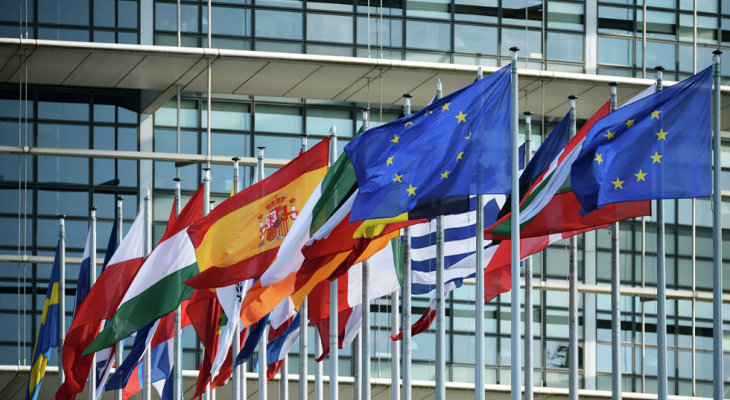The 27 countries of the European Union agreed at a summit in Brussels on Monday night to cut Russian oil imports by 90% by the end of this year, which is aimed at depriving Moscow of a “huge source of funding” for its war with Ukraine.
European Council President Charles Michel said that EU leaders agreed during the summit to gradually introduce a ban on the import of oil exported by Russia by sea, and at the same time agreed to grant a temporary exemption for oil transported by pipeline, to please Hungary, which threatened to veto this sixth package of European sanctions against Russia.
Michel tweeted that the cut would “deprive the Russian military machine of a huge source of funding” and put “maximum pressure” on Moscow to push it to end the war with its neighbor.
Berlin and Warsaw have pledged to halt Russian oil imports via the Druzhba pipeline, boosting Russian oil exports by up to 90%, which the European Union will phase out by the end of the year, said European Commission President Ursula von der Leyen and French President Emmanuel. Macron announced.
Macron, whose country holds the rotating presidency of the Council of the European Union, said the bloc would consider expanding the scope of the embargo “as soon as possible” to include oil exported by Russia via pipelines to the bloc’s member states.
“Russia prefers to continue its war in Ukraine. As united Europeans and in solidarity with the Ukrainian people, we are imposing new sanctions tonight,” Macron tweeted.
Ukrainian President Volodymyr Zelensky has urged European leaders to put an end to their “internal divisions” and impose a sixth round of sanctions against Moscow.
“Disputes in Europe must stop, Europe must show its strength, because Russia understands only the logic of strength,” Zelensky said.
On the financial front, the 27 member states of the Union have agreed to exclude Sberbank, Russia’s largest bank, from the SWIFT system for international money transfers.
“This package of sanctions includes tough measures such as expelling Sberbank, Russia’s largest bank, from Swift,” Michal said.
Sberbank is the largest bank in Russia, as it controls about a third of the country’s banking sector. The inclusion of this financial institution in the list of sanctions imposed on Russia further isolates the Russian financial system at a time when the Russian army’s invasion of Ukraine is in its fourth month.
On the other hand, Michel said that the leaders of 27 countries agreed during the summit to allocate nine billion euros to Kyiv to cover its urgent liquidity needs.
The European source specified that this funding would be in the form of “long-term loans” at concessional interest rates, noting that Kyiv had set its liquidity needs at $5 billion a month.
On the second and final day, Tuesday, the summit will consider the consequences of the food crisis associated with the war in Ukraine and the transformation of energy on the old continent into the rejection of Russian gas.
Source: El Nashra
